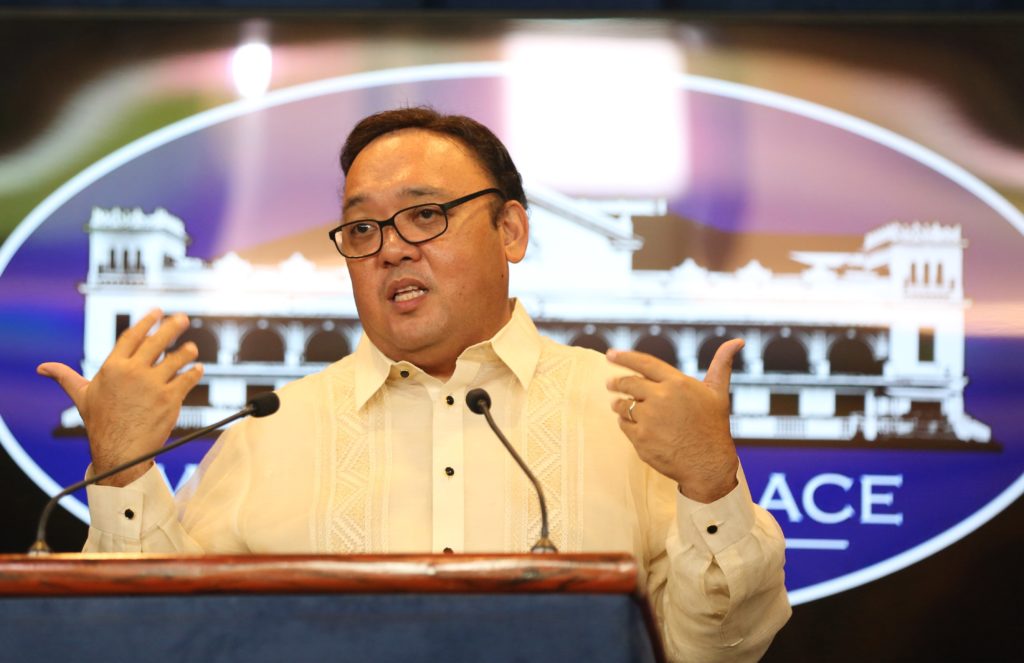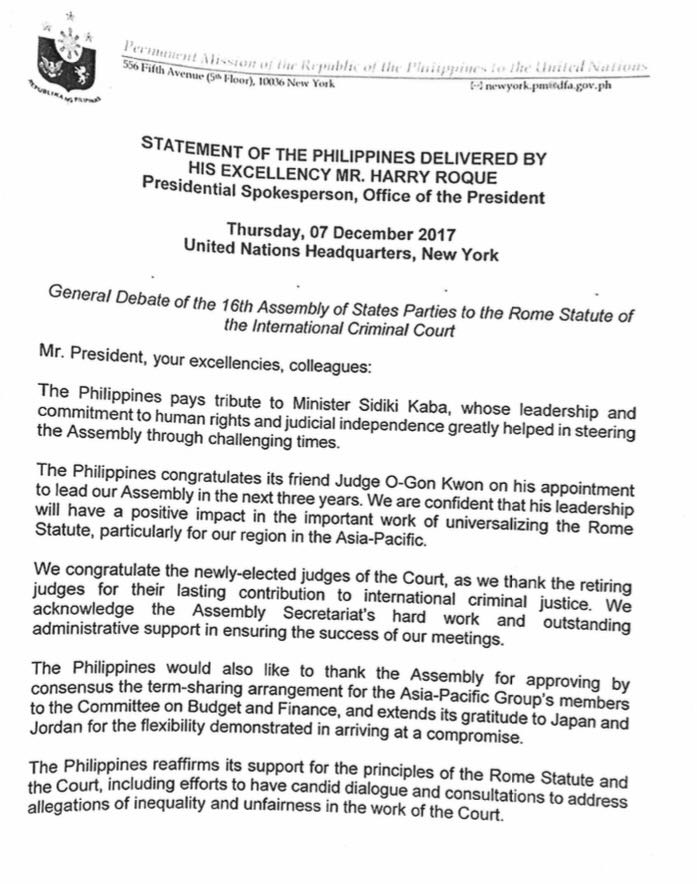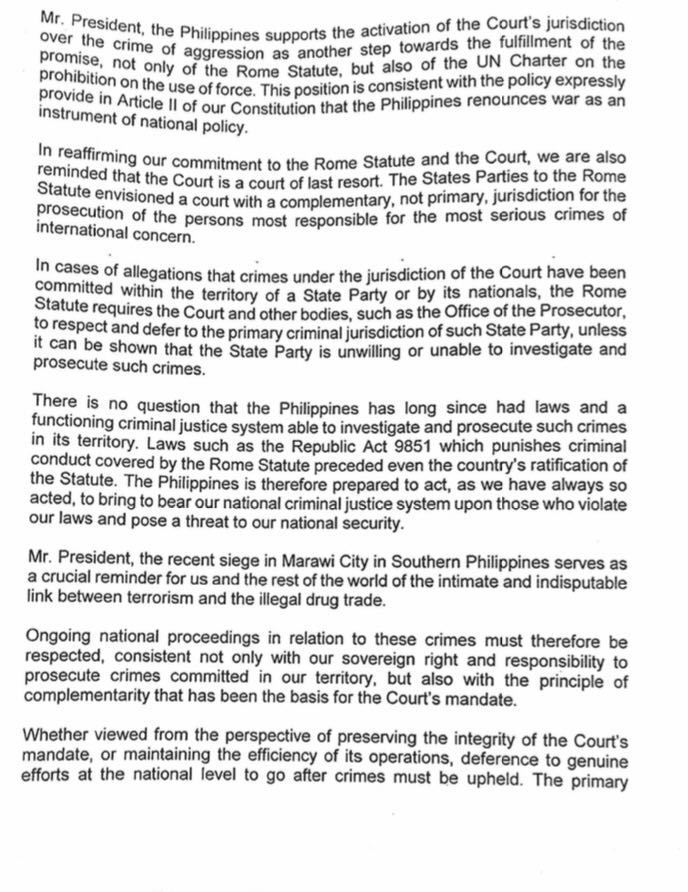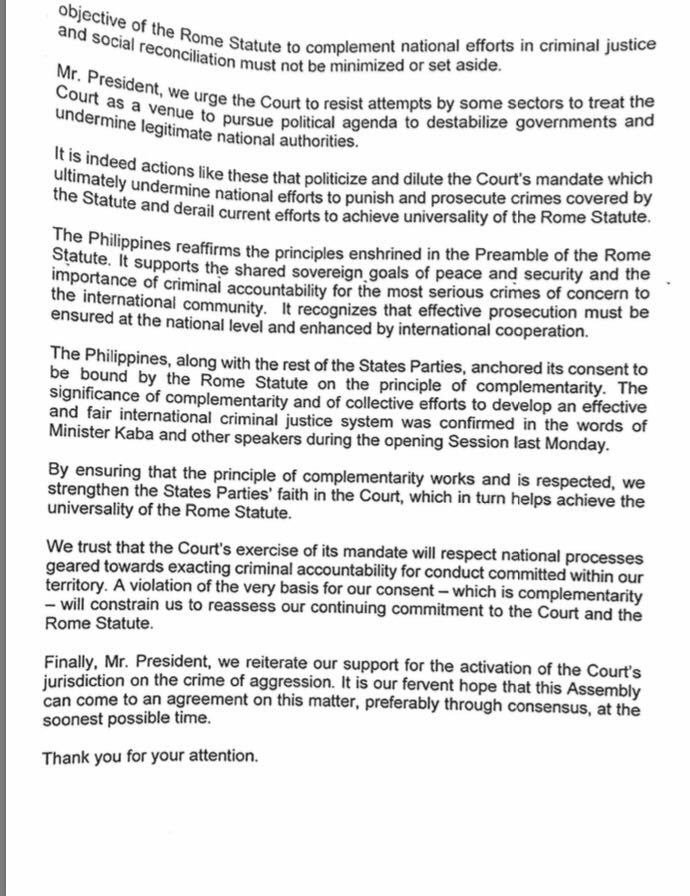PH warns ICC vs ‘some sectors’ using the court to advance political agenda

Presidential spokesperson Harry Roque INQUIRER PHOTO/JOAN BONDOC
The Philippines has urged the International Criminal Court (ICC) “to resist attempts by some sectors” to use the court “as venue to pursue political agenda” to topple the government.
Presidential Spokesperson Harry Roque, in a speech delivered on Friday morning (Philippine Time) during the General debate of the 16th Assembly of State Parties to the Rome Statute of the ICC at the United Nations General Headquarters in New York City, said the ICC should be a “court of last resort.”
“We urge the Court to resist attempts by some sectors to treat the Court as a venue to pursue political agenda to destabilize governments and undermine legitimate national authorities,” Roque said.
“It is indeed actions like these that politicize and dilute the Court’s mandate which ultimately [undermines] national efforts to punish and prosecute crimes covered by the Statute and derail current efforts to achieve universality of the Rome Statute,” he added.
Critics of Duterte and human rights groups have filed complaints before the ICC, urging the Court to step in and investigate President Rodrigo Duterte in his bloody war on drugs.
“There is no question that the Philippines has long since had laws and a functioning criminal justice system able to investigate and prosecute such crimes in its territory,” Roque said.
The Palace official urged the ICC to respect the measures and actions being undertaken by the Philippine government in dealing with the nation’s illegal drugs and terrorism predicament.
He cited the recently concluded Marawi City siege as a proof of the country’s serious problems on illegal drugs and extremism.
“The recent siege in Marawi City in Southern Philippines serves as a crucial reminder for us and the rest of the world of the intimate and indisputable link between terrorism and the illegal drug trade,” he said.
“Ongoing national proceedings in relation to these crimes must therefore be respected, consistent not only within our sovereign right and responsibility to prosecute crime committed in our territory, but also with the principle of complementarity that has been the basis for the Court’s mandate,” he added.
Last Monday, Roque threatened that the Philippines would withdraw from the ICC if it would not observe the principle of complementarity, which states that it would only exercise jurisdiction if the state party of the accused is “unable or unwilling” to prosecute the crime.
“In reaffirming our commitment to the Rome Statute and the Court, we are also reminded that the Court is a court of last resort,” he said.
“We trust that the Court’s exercise of its mandate will respect national processes geared towards exacting criminal accountability for conduct committed within our territory. A violation of the very basis of our consent – which is complementarity – will constrain us to reassess our continuing commitment to the Court and the Rome Statute,” he added. /kga


